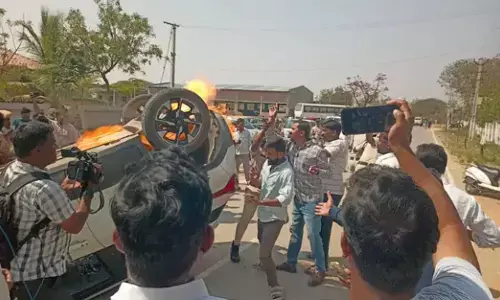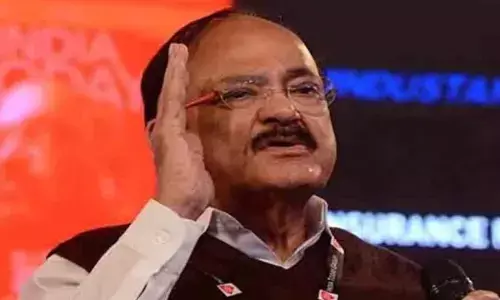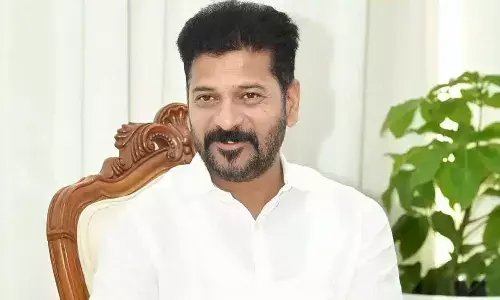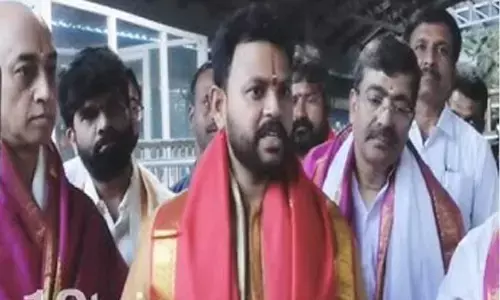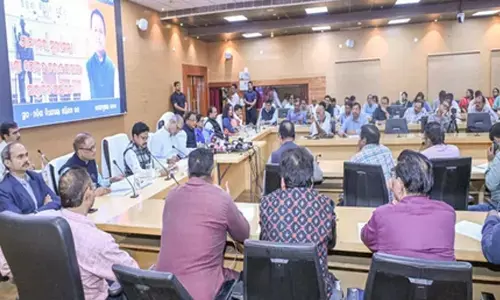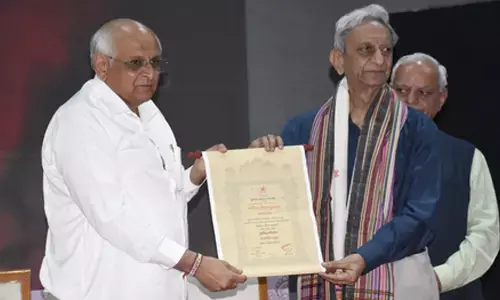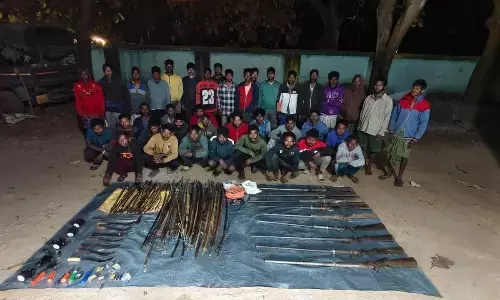An erudite musician
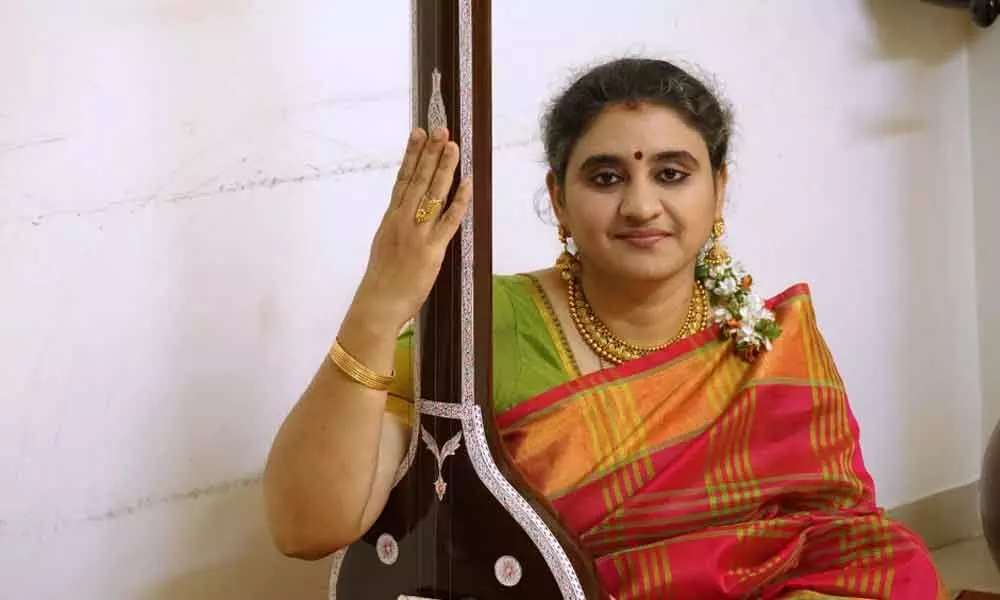 One should learn the basics, nuances and art of singing from one’s guru but develop a style of one’s own. The guru’s stamp is obviously there but if one imitates the guru totally, he or she will remain in the guru’s shadow without finding one’s niche
One should learn the basics, nuances and art of singing from one’s guru but develop a style of one’s own. The guru’s stamp is obviously there but if one imitates the guru totally, he or she will remain in the guru’s shadow without finding one’s nicheCarnatic musician Duddu Radhika brings to her music both the richness of tradition and the surprise of innovation that add value to her classical music concerts and lecture demonstrations
A powerful and evocative voice, erudite rendition and melody encompassing an imaginative interplay of swaras make Dr Duddu Radhika a carnatic musician to reckon with. A performing artiste, teacher and organiser, she brings to her music both the richness of tradition and the surprise of innovation that adds value to her classical music concerts and lecture demonstrations. Born into a family of musicians, she grew up listening to her mother Mylavarapu Sarada sing while cooking in the kitchen while her father Mylavarapu Venkat Rao a trained musician himself was her first teacher. After the initial lessons she and her sister Shanti took from her father, she went on to learn from gurus Saraswathi Vidyarthi and Bandlamudi Indira Kameshwari in Vizag and later from Raghavachari one of the famed 'Hyderabad brothers'. She is grateful to all her gurus, but is clear that one has to expand one's repertoire by listening to all the great musicians past and present and imbibing the best. "One should learn the basics, nuances and art of singing from one's guru but develop a style of one's own. The guru's stamp is obviously there but if one imitates the guru totally, he or she will remain in the guru's shadow without finding one's niche. Although KV Narayanaswamy learnt from the great guru Ariyakudi Ramanuja Iyengar, he developed his own bani (style), MS Subbalakshmi had a style distinct from her guru Semmangudi Srinivasa Iyer and Nedunuri Krishnamurthy's style was different from that of his guru Sripada Pinakapani. I would say one has to keep the guru in the heart but innovate and expand one's manodharma to make one's singing special and unique" she adds.
A Docorate in music, Radhika received great encouragement from her husband Duddu Lakshmi Ganapati Murthy who has learnt veena and mridangam and hails from a family of musicians with a tradition of music for three generations. Together they started a trust called the Sri Karthikeya Gana Sabha (SKGS) Trust eleven years ago to encourage, spread and promote music and organize concerts by both established and upcoming artistes. A stickler for the purity of classical music Radhika who teaches through her institution "Upaasana" says it is one of the most captivating forms of music which is akin to worship. "We carnatic musicians are fortunate that we worship the divine through our singing (nadopasana). We do not have to light the lamp and do puja or visit temples. Our practice is our worship. It is the way to Moksha or liberation which is the ultimate goal of life" she says. Asked to specify the greatness of classical music she says other forms of music may make the body sway but it is only classical music that has your heart swaying.
The Kartikeya Gana Sabha holds a concert every month, has a youth festival in September every year and an annual five day festival in November. They have awards for the best concert, neraval and other categories for youth as well as felicitations of talented musicians at the annual festival including one for an eminent vaggeyakara/ Musicologist and the highest felicitation with the title "Nada tejo nidhi". A Thyagaraja Aradhana festival in March gives award winning students an opportunity to perform on stage and all these activities are part of their efforts to instill love and appreciation for music Dr. Duddu Radhika says. They celebrated "Nadayogam" delving into various aspects of music and even had a 'jam session' on World music day during the last two years. Lots of youngsters are evincing interesting in learning classical music in the country and there are an equal number of NRI kids from different countries who are taking skype lessons she adds.
The artiste who has performed at venues all over the country has been a regular at the Marghazhi festival in Chennai and says it is heartening to watch a large number of musicians young and old where the atmosphere resonates with music. Here musical journey has several unforgettable moments too. She recalls fondly the award received from the hands of spiritual master K Sivanandamurthy after a concert at his ashram. The praise showered by the legendary percussionist Guruvayoor Dorai who praised and blessed her after listening to her performance at the concert of the Indian Fine Arts Society in Chennai is special she says. Another cherished compliment came from the famous musician Neyveli Santhanagopalan who told her that he appreciated and learnt the rare Thyagaraja keerthana in Bhairava Raagam which she had sung in her' Narada Pancharatna ' CD the notation of which she had from got eminent musician T.K Govinda Rao.
With emphasis on the Sahitya she has enlivened her concerts with compositions by Prayaga Ranga Dasu, Adibhatala Narayana Dasu, Thoomu Narasimha Dasu, Adhyatmika Ramyana Keerthanalu and " Mahamahohopadhyaya" Duddu Seetharama Sastry among others. She is perhaps the only artiste to have brought out CD's on the Kshetra Compositions of Saint Thyagaraja. These compositions based on the deities in the different Kshetras (holy places) are "Tiruvottiyur Pancharatnas', Kovvur Pancharatnas" Narada Pancharatnas" and the "Srirangam Pancharatnas". The fifth and final of the series "Lalgudi Pancharatnas" is nearing completion and due to be released shortly. She also gives thematic concerts based on 'Devi kritis', Bhakti compositions" and others and has currently posted 10 weekly episodes on Bhakti compositions of Thyagaraja on social media. As she moves ahead with a busy schedule it is everything musical that gets her attention. Thyagaraja's "Shobillu Saptaswara" which celebrates the divine forms of the seven notes for her is most inspiring.
- Aruna Ravikumar


